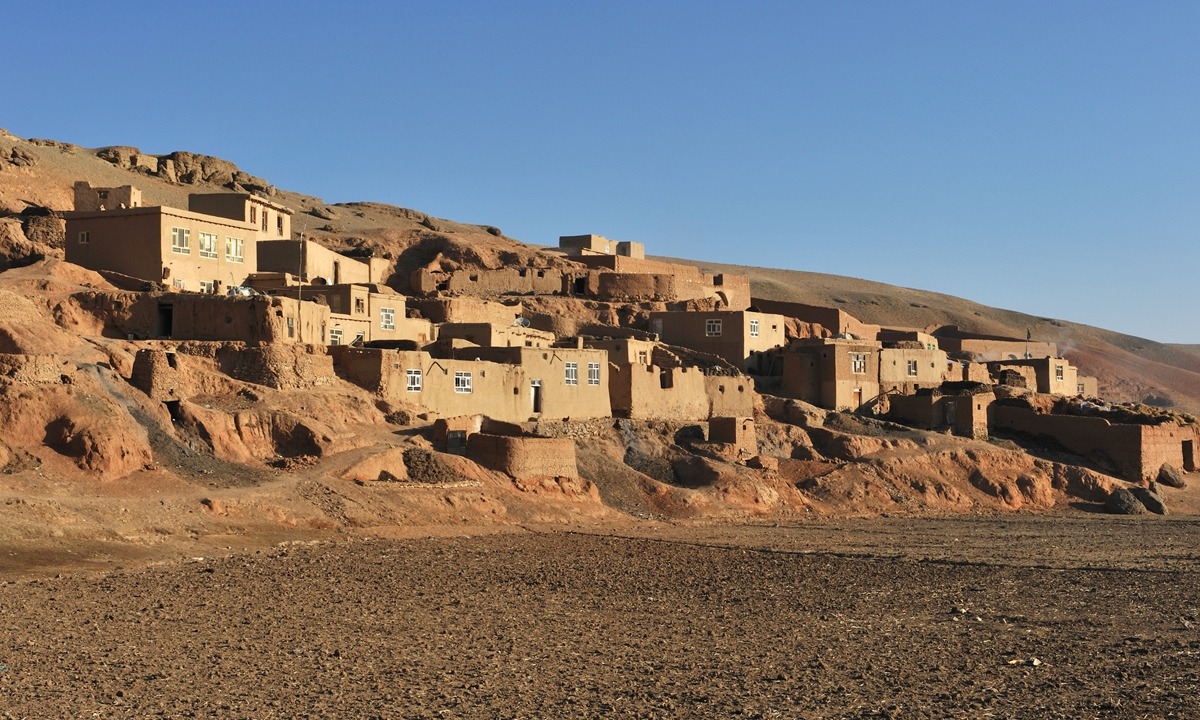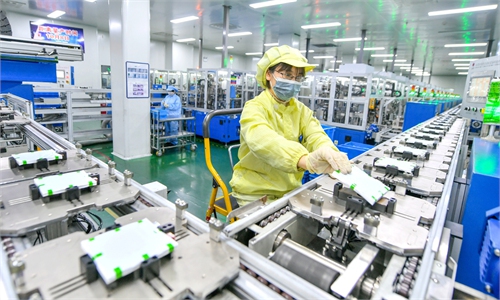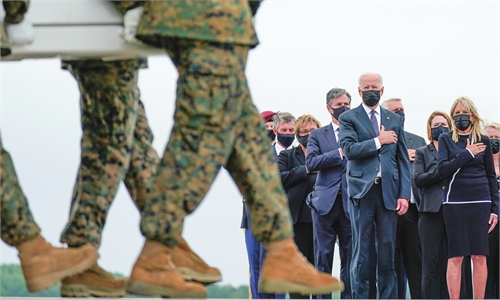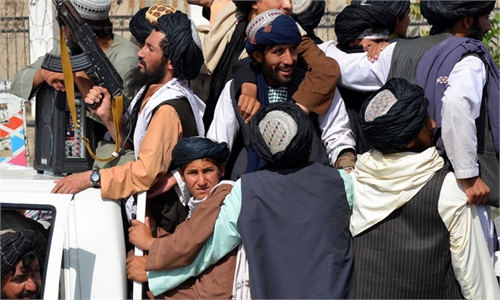International mining cooperation can boost Afghanistan’s post-war reconstruction
Untapped resources key to future

Photo: VCG
With the withdrawal of US troops, Afghanistan, which has long been dependent on international aid, is now in an urgent need of post-war economic reconstruction and self-renewal, which to some extent rests on greater international economic cooperation. Infrastructure projects under the Belt and Road Initiative (BRI) meet Afghanistan's current development needs, with industry insiders forecasting that cooperation in the mining sector will be conducive to Afghanistan's post-war reconstruction.
Untapping potential
China Metallurgical Group Corp (MCC Group) received a rising number of inquires in the past few weeks. The company won exploitation rights for the copper mine project in Mes Aynak in 2007, which is one of the high-profile Chinese investment projects in Afghanistan. But because of the regional instability, the mine has remained unexplored.
Because of decades of war, the country has not been able to make a good use of its abundance of natural resources, with institutions unwilling to invest in the country due to safety concerns.
According to an employee with the MCC Group, from 2009 to 2014, more than 400 rockets hit the copper mine.
Given the size of the mine, it is difficult to be fully protected, and only a relatively stable political environment will enable the safe construction and operation of the facility, one industry insider said.
If the project can be commenced in the future, it will be a win-win deal for both the Afghan people and MCC Group.
According to the current price and the capacity initially designed during the previous exploration, the annual profit is forecast to be near 2 billion yuan ($309.5 million), of which tax revenue is estimated to be about 20 percent, an employee with the MCC Group told the Global Times on Thursday.
In addition to taxes, the Mes Aynak project can bring tangible benefits to local communities and surrounding areas, including new roads, railways, schools, hospitals and other supporting facilities, and directly create 10,000 jobs, Xinhua News Agency reported.
MCC Group is confident that Afghan Taliban will recognize the mining rights contract, according to a MCC Group representative.
Other energy projects are also likely to be commercially explored when conditions met. An employee with the Power Construction Corporation of China, or PowerChina, a leading player in global electricity generation, especially in countries along the Belt and Road, said on Thursday that at present, the company has overseas offices in Afghanistan and is also following up with a number of potential projects.
After decades of war, Afghanistan is one of the least developed economies in the world, with its power infrastructure badly damaged by decades of warfare. According to media reports, there are about 2,500 factories operating in Afghanistan, but most of them have had to cut production because of the absence of a steady supply of electricity. Investment from multinational companies such as PowerChina will effectively alleviate the power shortage in the country.
West slander
However, Chinese-backed cooperation that is built on good faith and focused on economic growth has then been "dramatized" by some media in the West with some saying that "China rushes to fill in the vacuum in the country created by the US withdrawal," with others are calling for international intervention over possible China-Afghanistan cooperation.
"Afghanistan is estimated to have trillions of dollars worth of rare earth metals, and countries - such as China - that may be looking to swoop in on the country must follow international terms," US outlet CNCB reported, citing an analyst.
Some industry insiders said that the West media's attacks over possible China-Afghanistan cooperation have been a long enduring part of US political commentary, and does not merit any serious attention.
As early as 2006, US researchers had conducted a survey over the Afghanistan's mining resources. The aerial surveys determined that Afghanistan may hold 60 million tons of copper, 2.2 billion tons of iron ore.
Despite trillions of dollars in mineral resources, Afghanistan's economy has slumped as a result of prolonged instability. According to publicly available information from the World Bank, Afghanistan's GDP fell to $19.8 billion in 2020. GDP per capita shrunk to about $510 - putting it well within low-income country income bracket.
Different from the US occupation, China's international support that is based on the full respect of Afghanistan's sovereignty is not only about building roads and bridges that improve the lives of ordinary people but also activating the country's role in regional trade, Yan Wei, professor with the Institute of Middle Eastern Studies of Northeast University, told the Global Times on Thursday.
Untapping cooperation potential means the substantive opportunity that enables Afghanistan to create a more resilient economy and make it possible for it to end the decades-long dependence on international aid that has now become a headache after the US withdrawal, said Yan.
"Through mining development, it can promote the economic and infrastructure development in a way that stimulate Afghanistan to realize its own sustainable development as a transportation and trade hub in Central Asia," said Yan.



